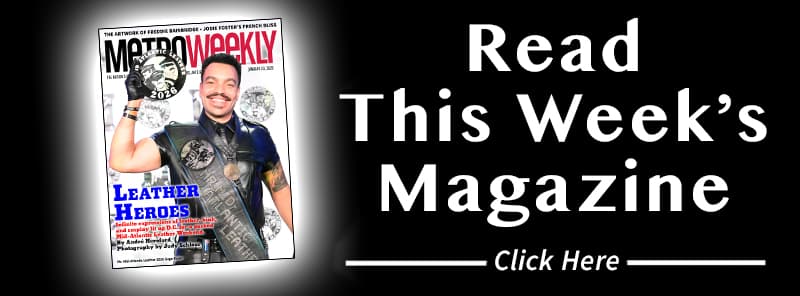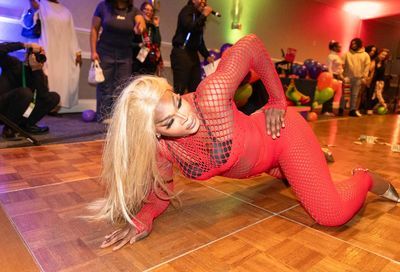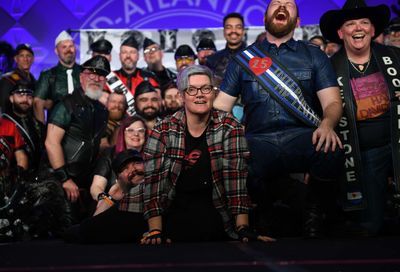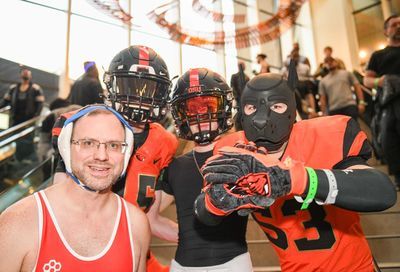‘Boys State’ is a gripping, profound look at contemporary politics through the eyes of teenagers
The participants of the thrilling, provocative Boys State reflect on their experiences making the documentary

The first cut of Boys State was a whopping five hours.
“It was wild,” says the documentary’s co-director Jesse Moss. “We shared it with our partners here at Concordia Studio, and our Executive Producer, Davis Guggenheim, who’s a great filmmaker, literally leaped out of his chair when [one of the boys] had a triumphant moment. Now, most people are just bored to tears by a five-hour cut, but there was something about this story….”
Luckily, the final cut of the invigorating documentary, which is by turns gripping, provocative, and profound, is a manageable hour and fifty minutes. Quite possibly the best documentary of 2020, Boys State lays bare the mechanics that drive contemporary politics, all through the eyes of high school juniors, assembled annually by the American Legion to forge mock governments. The weeklong events, held in every state, culminate in a gubernatorial election between two opposing parties, the Nationalists and the Federalists, each of which constructs a platform from scratch. Think of it as a hands-on civics lesson primed by youthfully stubborn, regional ideologies and hormonal bravado.
The 2017 Texas Boys State garnered national attention when it voted for Texas to secede from the union. The news, says Moss, drew his and co-director Amanda McBride’s attention. “We read about it in The Washington Post,” he says. “The following spring we went to Texas and began the process of making the movie. We shot it in June of 2018.”
The film hones in on four of the 1,000 participants: Robert MacDougall and Steven Garza, who make runs for governor, and Ben Feinstein and René Otero, who each chair the opposing parties.

“I went in seeing it as a game,” says MacDougall. “I went in expecting a very hard line, very conservative room, unwilling to compromise, unwilling to hear other opinions. And I went in saying ‘You know what? I’m going to play to that. I’m going to try to win.’ What I realized was young people aren’t all hardliners that were taught by their parents to believe these certain things, and that, in reality, we’re able to have intelligent civil conversations. For the large part, we all want what’s best for our state and our nation. I came out with a new optimism…and a new hope that people of my generation can come into our own in politics and make some real change.”
MacDougall’s faith in politics, however, is tempered by the potential misuse of social media. “It’s clearly a very powerful tool that can be used for good, for educating and spreading information, or can be used maliciously, spreading hate and lies and misinformation,” he says. “In our Boys State, sadly, we saw it stray to that darker side with misinformation and racism and harassment.”
Otero, the Nationalists’ party chair, becomes a victim of that harassment. A transplant from Illinois, Otero magnificently and forcefully stands up to a vicious attempt to impeach him early into his tenure. Currently a student at UT Austin, Otero says dealing with the racism inherent in the attacks wasn’t new to him, and he is careful not to attribute it to the southern surroundings.
“Racists live everywhere,” he says. “They’re just a different breed from the north and the south. That being said, I kind of already expected it. It was something I’d already dealt with for such a heavy part of my life. The sad part of it all, the thing that did surprise me, was that race was still being utilized as a mudslinging tactic, as a way to get over on other people…. All eyes were on me, whether it be the camera or the party that I was leading. I looked very much so different from the people that I was presiding over that I had a standard and a burden — a burden of proof for what a liberal Black person can do in Texas politics.”
Ben Feinstein, party chair for the Federalists, takes an aggressive, heavy-handed approach in the film, and looks back on several of his decisions with palpable regret. “The documentary was more illuminating than the actual program for me in terms of what I gained as a person,” he says. “I was there to do a mission and was operating in a very mission-oriented way. I wasn’t thinking about the big picture. I was just doing my job. But when I watched the documentary and I saw my opponents as people, who at the time I had just viewed as obstacles to whatever I was trying to achieve, it made me realize that there’s something a lot bigger than just the mission going on here.

“I’m very inspired by Steven Garza, in particular,” he continues, “because he appealed to people’s better angels and that got him really far. It gives me a lot of hope that if we go about our process authentically and genuinely, we can achieve some real change.”
Garza is the movie’s de facto star, an improbable underdog who makes it into the final race and faces a sudden battle when it’s discovered he organized a March for Our Lives rally, a revelation the vast majority of the 1,000 Texan attendees find abhorrent, given that any call for even moderate gun reform is seen as a nuclear assault on the Second Amendment.
“I did not ever plan on one of my positions coming out like that,” says Garza. “I was planning on running the entire campaign on unity and on the central theme of working together. But, you know, everybody has a plan until they get punched in the face.”
Boys State is now streaming exclusively on Apple TV+. Visit tv.apple.com.
Read Next
Support Metro Weekly’s Journalism
These are challenging times for news organizations. And yet it’s crucial we stay active and provide vital resources and information to both our local readers and the world. So won’t you please take a moment and consider supporting Metro Weekly with a membership? For as little as $5 a month, you can help ensure Metro Weekly magazine and MetroWeekly.com remain free, viable resources as we provide the best, most diverse, culturally-resonant LGBTQ coverage in both the D.C. region and around the world. Memberships come with exclusive perks and discounts, your own personal digital delivery of each week’s magazine (and an archive), access to our Member's Lounge when it launches this fall, and exclusive members-only items like Metro Weekly Membership Mugs and Tote Bags! Check out all our membership levels here and please join us today!























You must be logged in to post a comment.